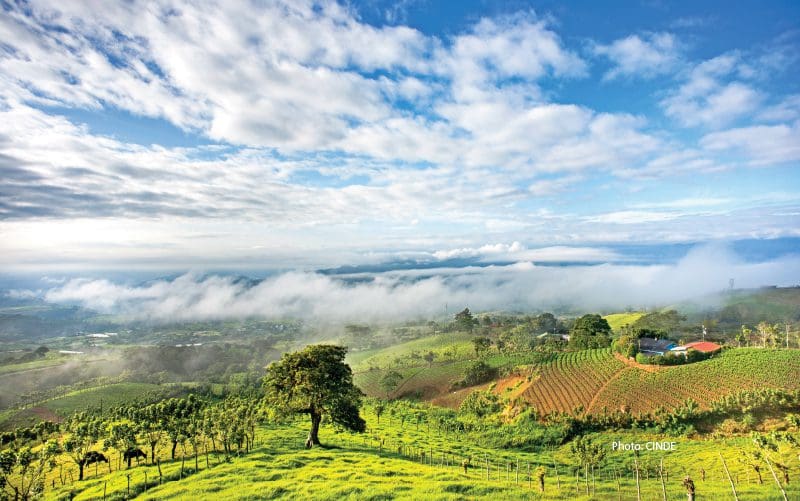
Savoring Benefits of the Free Zone Regime
Years ago, when free zone companies in Costa Rica were talked about, San José, Heredia and Alajuela would automatically come to mind. But times have changed and economic progress beyond that so-called Greater Metro Area (GMA) has made free zones a relevant conversation topic throughout the whole country. “When it rains, you get wet,” is an apt metaphor to explain how the Free Zone Regime (FZR) has been extending the concept of rising cities outside the GMA in recent years.
This expansion has not been easy and there is much more to do. We are aware that the conditions for FZR development are not always ideal, while it is essential to increase their competitiveness. However, this target has underpinned improvements to the infrastructure, technology, connectivity, and human talent reskilling of rising cities.
The Remote Work Law has enhanced the possibilities
for hiring workers who do not need to commute.

In the last four years, rising cities’ employment has increased by 10% annually.
In 2015, part of that job was to identify 20 rising cities with clear opportunities for Foreign Direct Investment (FDI). The Costa Rican Investment Promotion Agency (CINDE) in that regard has been featured in recent Howler articles.
FDI opportunities in rising cities are tied to learning goals for English as a second language in those areas. In 2018, 200 people from San Carlos and Puntarenas, between the ages of 18 to 45, started the Skills for Life program. Its objective is to teach English and soft skills, such as finances and leadership, to 800 participants.
The HR-GPS project is another example of striving to make human talent acquisition more effective, motivating them to invest more in Costa Rica’s rising cities.
Finally, the Remote Work Law has enhanced the possibilities for hiring workers who do not need to commute from these regions or even change their place of residence. Amazon is a perfect example. In 2019, the company hired 1,050 collaborators who work in a virtual capacity. More than half of them — 53% — live and work outside the GMA.
Win-win benefits
The universal benefit of this law has strengthened the Free Zone Regime (FZR) by making it more efficient and practical, at the same time improving the employees’ working conditions.
There is no question that the FZR has been a dynamic force behind Costa Rica’s important steps forward to increase investment outside the metro area.
CINDE’s data reveals that 547 jobs were created in 2019 as an outcome of FDI in rising cities. In the last four years, employment has increased by 10% annually.
That robust growth has been attributed to an increase in medical devices exports, a reduction in the wage gap, and an increase in Costa Ricans’ job opportunities. FDI from companies attracted by CINDE adds up to more than 118,000 jobs for a high-caliber labor force.
Companies within the FZR are doubling their efforts to promote Costa Rica not only as an economically stable country, but increasingly wider and more desirable job opportunities for all our citizens.
